As Haiti reels from crises, U.S. policy decisions are called into question
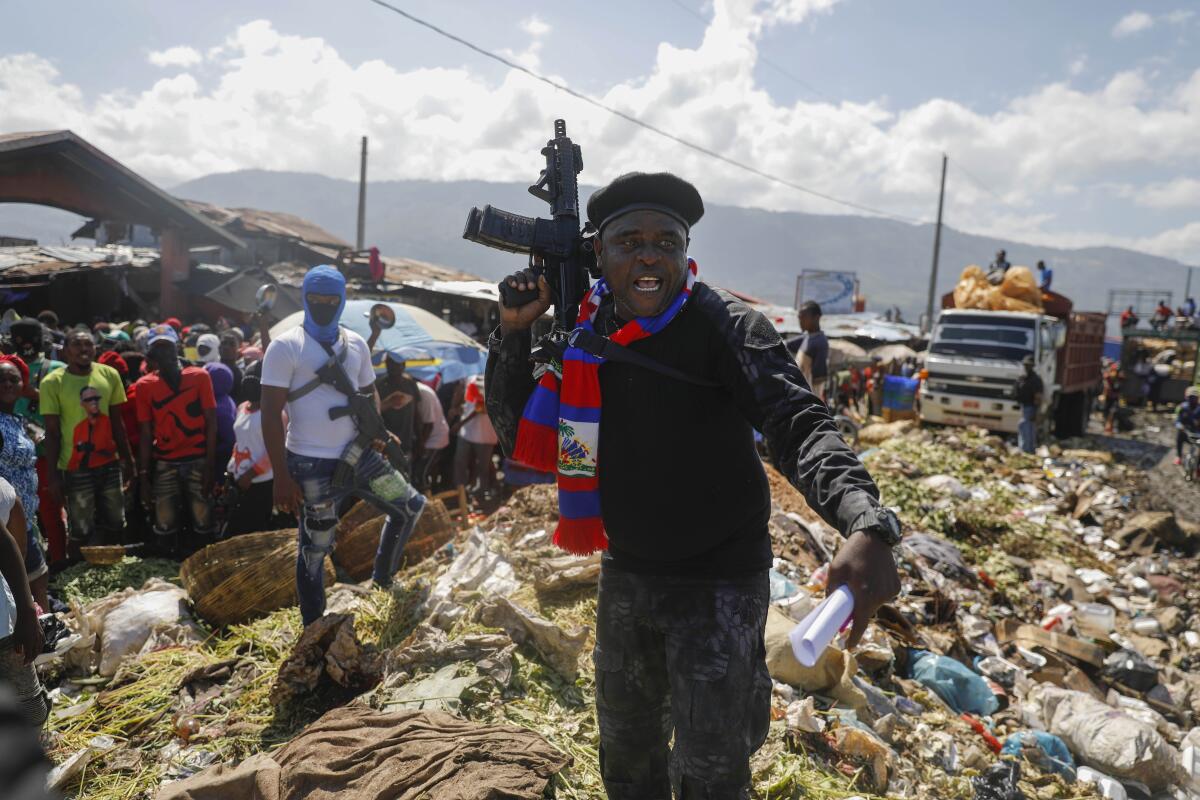
Dessalines Day is a point of pride in Haiti, a time to commemorate the revolutionary hero who defeated Napoleon’s troops, abolished slavery and in 1804 established the first free Black republic.
But this year the Oct. 17 holiday played out like political theater of all the woes afflicting the nation.
The acting prime minister was headed to speak at the monument marking the spot where Jean-Jacques Dessalines was assassinated just outside the capital, Port-au-Prince, but his convoy was turned back by gunfire.
In the absence of a government delegation, a police-officer-turned-gang-leader seized control of the ceremonies. Flanked by masked men with assault rifles, Jimmy Cherizier, who goes by the name “Barbecue,” strode to the monument in the white suit and collar of palace officialdom and roused the crowd.
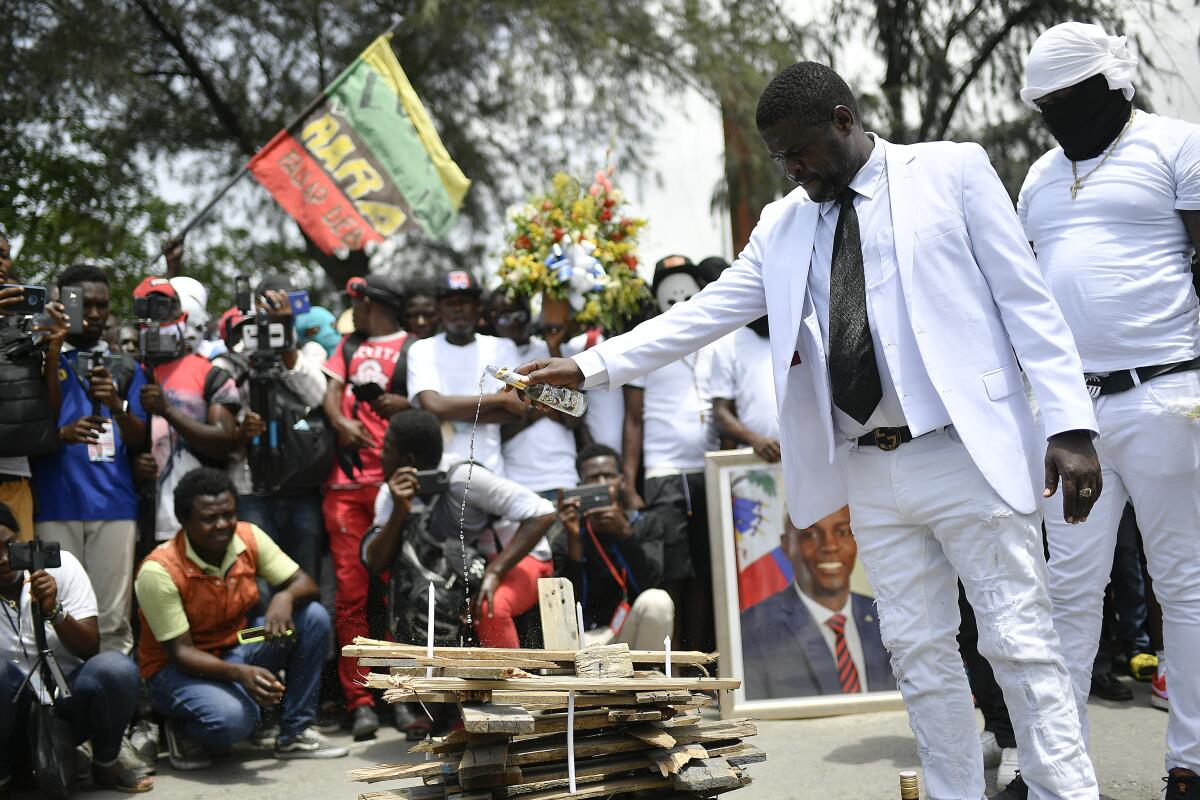
“Today the time has come where they have the ports and the tax offices,” he shouted. “They are all millionaires. We are sleeping with pigs. This is how the system is.”
Like dozens of gang bosses in Haiti, Cherizier is a product of the country’s fractious politics, and as has been the case for more than a century, those politics are deeply entwined with U.S. policy.
Since U.S. Marines first occupied Haiti in 1915, Washington has put its thumb on the balance of power, supporting the brutal Duvalier dictatorships dating to the 1950s and more recently propping up center-right presidents with little popular support.
The latest round of violent upheaval in Haiti is inextricably linked to Jovenel Moise, who won the presidency in 2016 in flawed elections and then proceeded to strip away institutions, rule by decree and — even after constitutional experts said his term had expired — remain in power until he was assassinated in July.
Along the way, he enjoyed the support of both the Trump and Biden administrations.
Gangs that were connected to Moise have continued to operate with impunity, often using government vehicles; robbery, rape and kidnapping for ransom have reached epidemic levels.
Preachers have been snatched during sermons, teachers abducted from classes and buses hijacked on highways. When a magnitude 7.2 earthquake struck southern Haiti in August, killing more than 2,000 people, the rescue and recovery effort was severely constrained by the insecurity on the roads.
In one of the most brazen acts of recent violence, 17 missionaries from a U.S. ministry were kidnapped Oct. 16 and have yet to be released.
The next day at the Dessalines monument, armed gang members wore “Justice for Jovenel” shirts while their leader, Cherizier, placed flowers next to a framed photo of Moise.
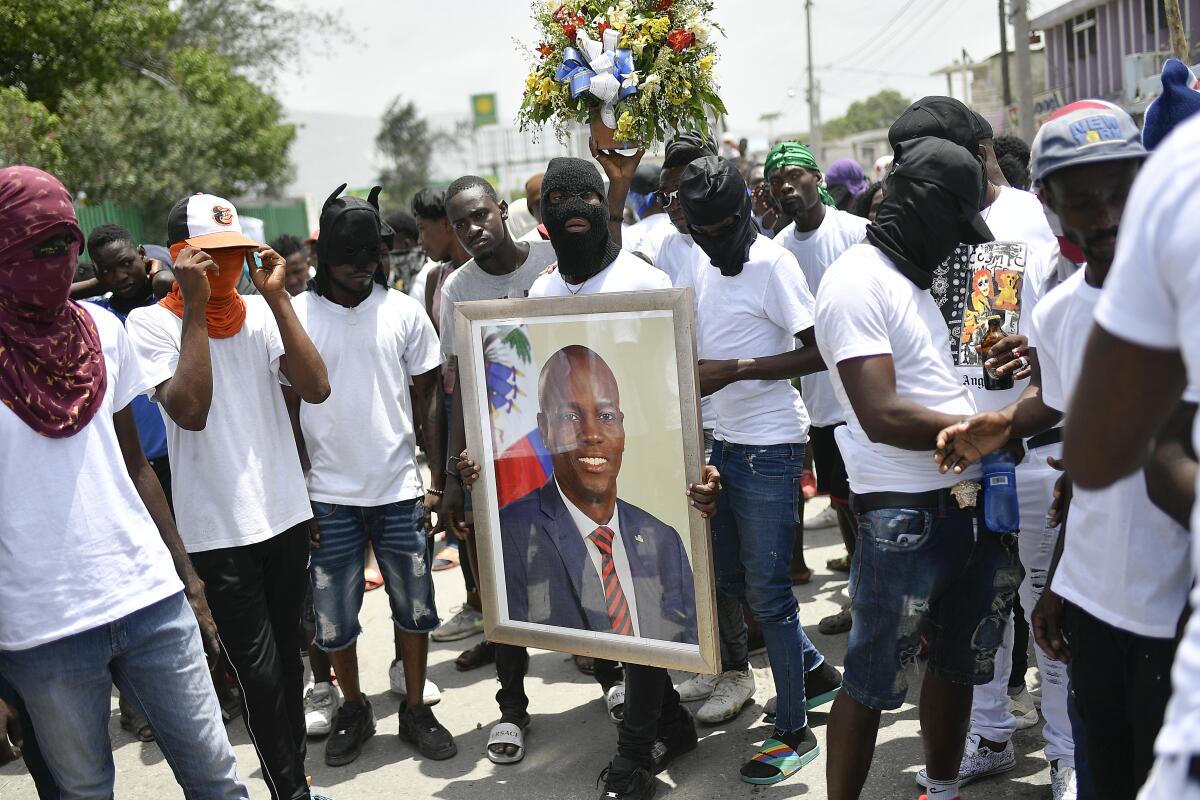
Cherizier stands accused of numerous crimes against humanity, most notably a 2018 massacre of 71 men, women and children in the slum of La Saline, a neighborhood that had been a seat of protest against corruption in Moise’s government.
A high-ranking official in the Moise administration, Joseph Pierre Richard Duplan, “provided firearms and [Haitian National Police] uniforms to armed gang members who participated in the killings,” according to a U.S. Treasury Department bulletin about sanctions for “serious human rights abusers.”
The question on the minds of many involved with Haitian affairs as the country falls into a deepening despair: Why is the Biden administration continuing down the same path that led to this point?
“It is not Haitians who have been deciding that this mafia state should be there holding our institutions as hostage,” said Monique Clesca, a retired United Nations development official based in Port-au-Prince.
Clesca is on the Commission for a Search for a Haitian Solution to the Crisis, a 13-member civil society group that formed in March. It includes church leaders, women’s rights groups, voodoo priests, humanitarian workers, lawyers, a rural peasant coalition, labor unions and members of the diaspora.
“The U.S. is Derek Chauvin’s knee on our neck,” Clesca said, referring to the former Minneapolis police officer convicted of the 2020 killing of George Floyd. “Now we are organizing to say stop it, enough.”
In July, the group came up with an accord for a two-year transitional government aimed at shoring up security, healthcare and education, rooting out corruption and creating the climate for free and fair elections.
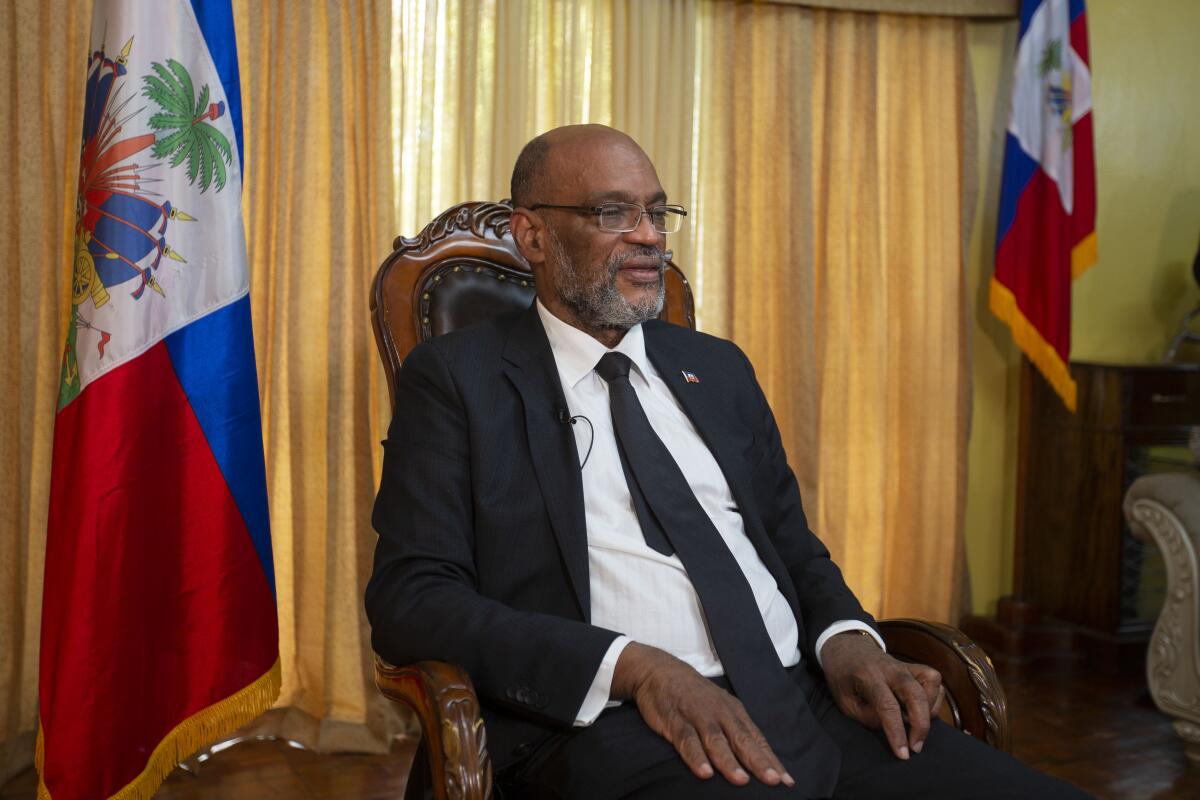
But the influential diplomats of key donor nations in Haiti, led by U.S. Ambassador Michele Sison, in effect rejected that accord by backing Moise’s appointed prime minister, Ariel Henry, to lead the nation.
Now Henry’s inability to attend the Dessalines memorial, even with the full backing of the National Police, has many wondering about his hold on power.
“Can this really go on?” Clesca asked. “Can you imagine going into elections with Barbecue out there? That’s what’s being set up.”
Political and business leaders have long used paramilitary forces to terrorize opponents in Haiti, mostly in the capital and other big cities. But the practice escalated dramatically and spread throughout the countryside under Moise and his U.S.-backed predecessor, Michel Martelly, according to Louis Herns Marcelin, a Haiti expert at the University of Miami.
“About 60% to 70% of senators have their own gangs, and the oligarch families who control the private sector in Haiti either have their own gangs or have gang leaders on their payroll,” he said.
The handful of oligarchs have long pulled the strings from the shadows, controlling every sector of the Haitian economy, pilfering government coffers and wielding oversized influence on U.S. policymakers. And they have an unlimited pool of young jobless men to do their bidding in the streets.
Democrats in Congress say U.S. support of bad actors in Haiti needs to stop.
“We have been stressing to everyone, including Secretary of State [Antony J.] Blinken, there really needs to be a course correction,” said Rep. Yvette D. Clarke (D-N.Y.), co-chair of the House Haiti Caucus, in an interview.
“While Moise was still alive we were very concerned about the propping up of his administration because the dissatisfaction was very resonant among the populace there.”
She said her colleagues are speaking with the administration and still holding out hope that it will take a new tack.
“Things can’t get any worse in Haiti. And we have an opportunity and an opening, given the level of crisis they are facing, to lead in this moment in a way that is helping Haitians come up with Haitian solutions.”
Criticism has also come from within the ranks of the U.S. State Department.
In September, Daniel Foote, the U.S. special envoy for Haiti, resigned in protest and released a scathing letter criticizing the Biden administration for supporting the “unelected, de facto Prime Minister Dr. Ariel Henry” over the accord worked out by the civil society coalition.
Decrying the United States for its long history of propping up autocrats, Foote wrote that what Haitians need “is the opportunity to chart their own course, without international puppeteering and favored candidates but genuine support for that course. I do not believe Haiti can enjoy stability until her citizens have the dignity of truly choosing their own leaders fairly and acceptably.”
“The hubris that makes us believe we should pick the winner — again — is impressive.”
He also condemned the administration for its decision this month to expel Haitian immigrants rounded up in Del Rio, Texas, where they had formed an encampment and were applying for asylum.
“The people of Haiti, mired in poverty, hostage to the terror, kidnappings, robberies and massacres of armed gangs and suffering under a corrupt government with gang alliances, simply cannot support the forced infusion of thousands of returned migrants lacking food shelter and money,” he wrote.
The State Department declined requests for an interview for this story. But Deputy Secretary of State Wendy Sherman said in a video interview with the Miami Herald that her main disagreement with Foote was over a proposal he made to use U.S. troops to restore security in Haiti.
“Our interest is that the Haitian people can choose their own future in a free and fair election,” she said. “We don’t take sides with anyone.”
Sherman pointed out that the United States had spent more than $5 billion in aid since an earthquake leveled much of Port-au-Prince in 2010.
But many in the metro area of 2.6 million see little to show for it, with few ways to make a living, trash piling up in the streets and a poorly trained police force unable to maintain order.
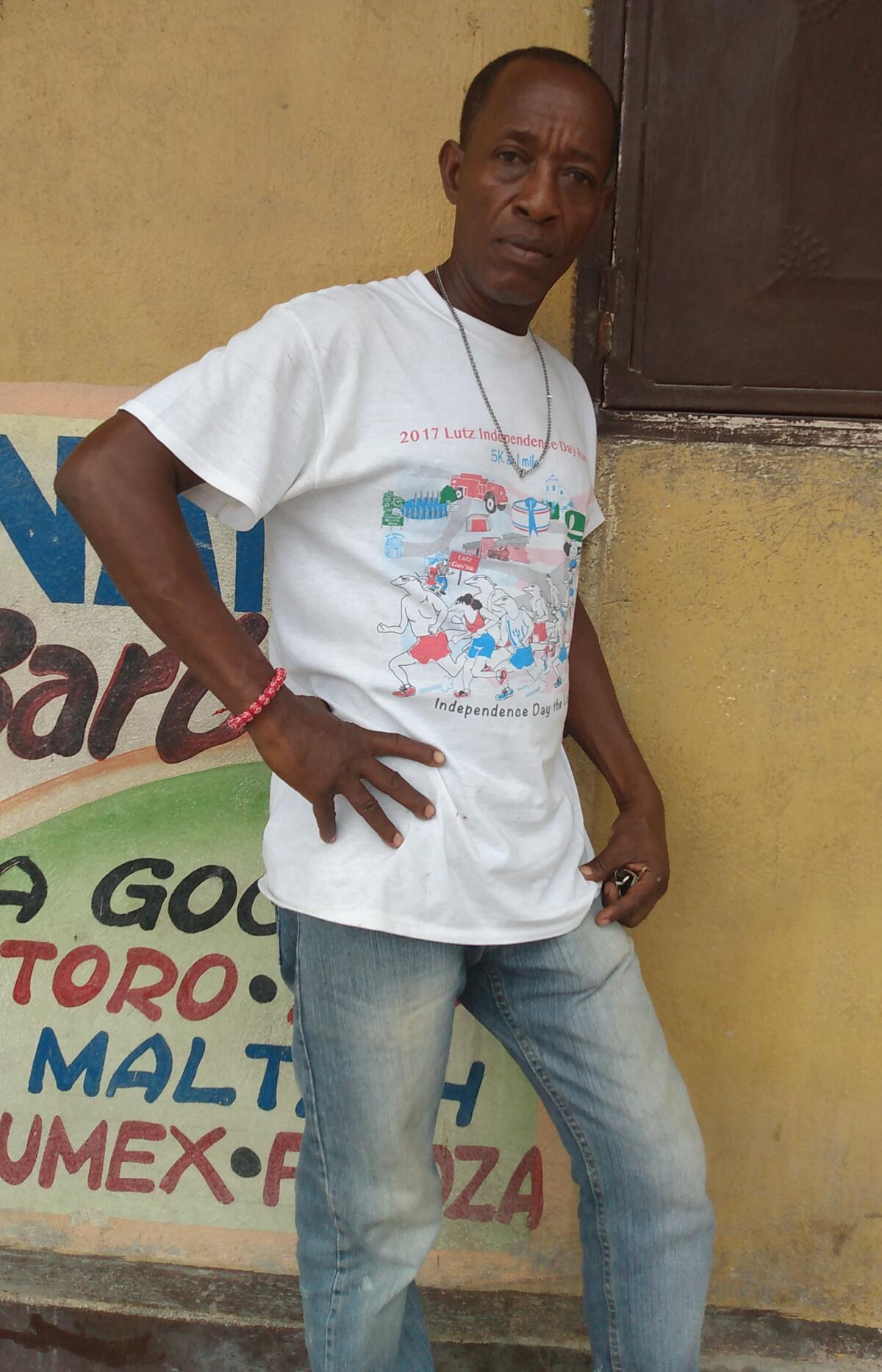
Patrick Colas, 58, said he recently pooled money from family in the U.S. to send his 23-year-old daughter to the Dominican Republic, as gangs moved into his neighborhood and threatened to rape her.
“She was chased down,” he said. “I had to get her out.”
As he spoke to The Times on a cellphone, he described a group of young men with rifles driving down the street in a white SUV. Asked whether the police would do anything to stop them, he laughed.
“No, no, no, no, no, no. The police are just looking out for themselves,” he said. “You just have to pray to God that you don’t get kidnapped.”
Nearby, Junior Frantz Cazeau, 28, sat outside his house on a bench seat that had been ripped from a car. After the earthquake, he decided he had to leave.
“I was always a young man with dreams of good life with lots of success, helping my family,” he said. “That couldn’t happen in Haiti.”
He got a visa and flew to Chile, one of 300,000 Haitians who fled the destruction for South America. He did odd jobs and eventually found stable work as a disc jockey, sending money home.
Starting in 2020, quarantines due to the COVID-19 pandemic hobbled his business. Once President Biden took office, Cazeau started hearing from friends who made into the United States through the Texas border. He decided to go to New York, where he had several relatives, so he grabbed what cash he had and started taking buses north. It took two months to reach the crossing at Del Rio.

There he found himself stuck, with hundreds of other Haitians. He watched as U.S. border agents on horses rounded up his fellow Haitians on the riverbank. Eventually, he said, he was taken to a detention center and told he would be relocated to a city in the United States. It didn’t take long in his flight to realize they were sending him back to Haiti.
“It was a pure lie,” he said.
Now he has nothing to do but hustle for food and water from the friends he helped before. But inflation has made everything expensive. A gallon of gas can run up to $15, if you can find it. And he’s terrified to move around the streets, saying the returnees are targets because they are presumed to have money.
“I’m going to try to get back to Chile,” he said. “It’s my only option.”
More to Read
Sign up for Essential California
The most important California stories and recommendations in your inbox every morning.
You may occasionally receive promotional content from the Los Angeles Times.











